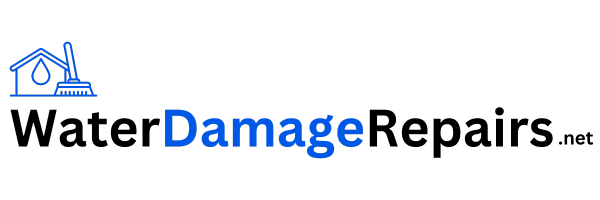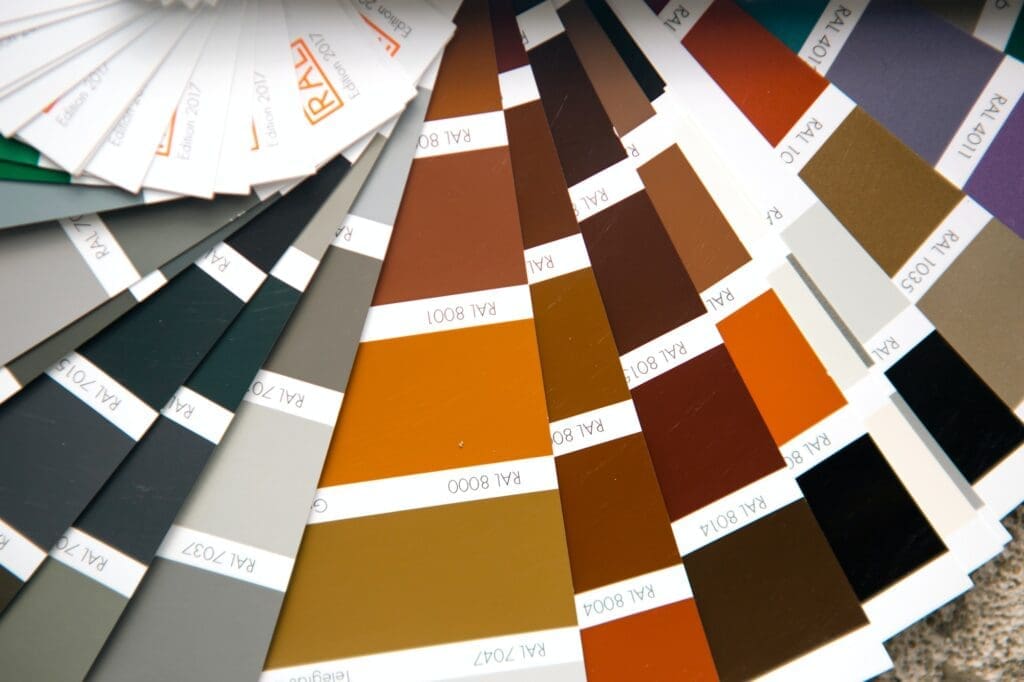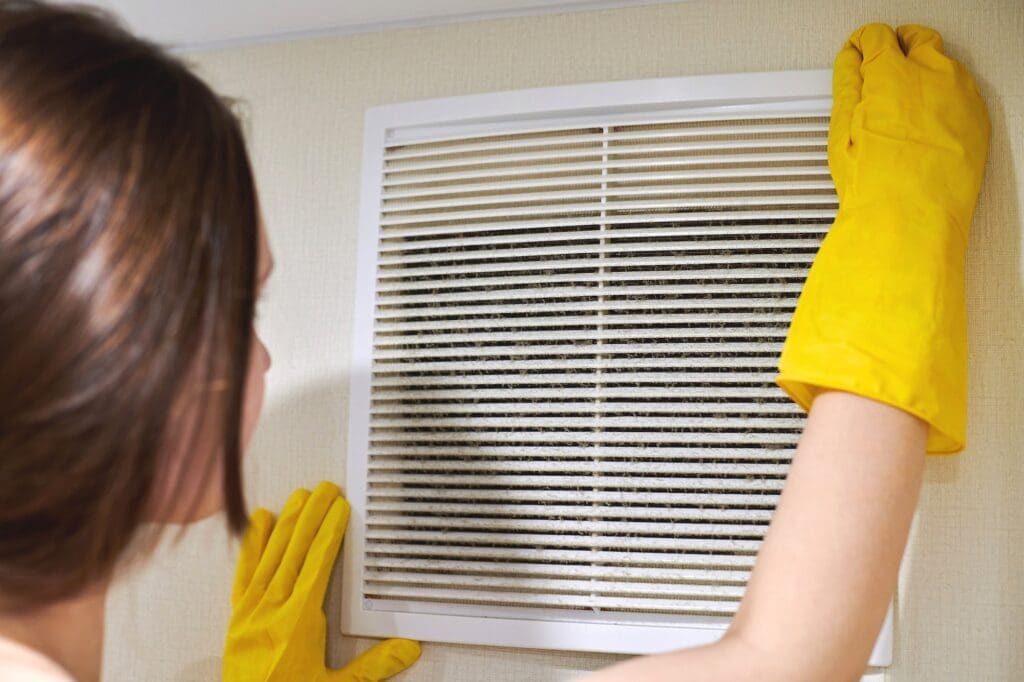The Impact Of Water Damage On Your HVAC System: What You Need To Know
As a dedicated HVAC system expert, I’ve seen firsthand the negative impact that water damage can have on your heating, ventilation, and air conditioning systems. It’s an unfortunate reality that many homeowners face at some point in their lives – often without even realizing it.
But don’t worry; I’m here to help you understand the potential risks associated with water-damaged HVAC systems so you can better serve others by sharing this valuable knowledge.
You might be surprised to know that something as seemingly harmless as a minor leak or excess humidity can lead to serious problems for your HVAC system. In my experience, these issues tend to crop up when we least expect them – but if left unaddressed, they could result in costly repairs or even complete equipment failure.
That’s why it’s essential to stay informed about the warning signs of impending trouble and take action before it becomes a major headache. Let me share what I’ve learned over years of working with countless clients who were once just like you: eager to make sure their homes remained safe, comfortable havens for friends and family alike.
Common Causes Of Water Damage
Imagine this: You just got back from a long vacation, and as you walk into your home, you’re greeted by the unpleasant sight of water damage. Your heart sinks as you realize that while you were away enjoying some much-needed relaxation, your HVAC system was slowly being compromised.
As an HVAC expert who’s been in the industry for years, I can tell you that water damage is something we’ve seen far too often with our clients. It’s crucial to understand the common causes of water damage to prevent it from happening to you.
Two primary factors contribute to water damage in HVAC systems – poor waterproofing and inadequate pipe maintenance. Waterproofing may not be at the top of your priority list when considering home improvements, but trust me, it should be.
By ensuring that all possible entry points for moisture are sealed off, including around windows and doors or through cracks in walls or foundations, you’ll significantly reduce the chances of water infiltrating your system. Another essential step is regular pipe maintenance; checking for leaks and addressing any issues promptly will help avoid costly repairs down the line.
Now that we know what usually leads to these messy situations let’s dive deeper into how we can spot early warning signs before things get out of hand.
Early Warning Signs
We know you care about the well-being of your loved ones and want to ensure that their environment is safe and healthy. That’s why it’s important for you to be aware of any early warning signs that may indicate water damage in your HVAC system. By catching these issues before they escalate, not only are you maintaining a comfortable living space for those who matter most, but also preventing costly repairs or even complete system breakdowns.
Let’s discuss some key indicators that could signal potential water damage within your HVAC system:
- Condensation build-up: If you notice an unusual amount of moisture around your air vents, this may suggest condensation build-up within the ductwork.
- System erosion: Corrosion on components such as coils, pipes, or other metal parts can be a sign of ongoing exposure to excess moisture.
- Moldy odors: Musty smells emanating from your vents often hint at mold growth within the system due to persistent dampness.
- Inconsistent temperature control: Difficulty maintaining consistent temperatures throughout your home might mean there is water damage affecting the efficiency of your HVAC unit.
Being proactive about addressing these concerns will help keep everyone in your household breathing easy and safeguard against expensive damages down the road.
Now that we’ve covered how to spot early signs of trouble, let’s move forward by exploring some potential health risks associated with water-damaged HVAC systems so you can remain vigilant in keeping everyone protected.
Potential Health Risks
So, you’re now aware of the early warning signs indicating possible water damage to your HVAC system. But what about the potential health risks that come along with it?
It’s important for us as caretakers of our homes and families to be informed on this topic in order to ensure a safe living environment.
One significant concern when dealing with a water-damaged HVAC system is changing filters more frequently than usual. If you neglect this step, contaminated air can circulate throughout your home or workplace, putting everyone at risk for various health issues such as allergies, respiratory conditions, and even mold-related illnesses.
Airborne particles like bacteria, viruses, dust mites, and pollen thrive in damp environments, which means a wet HVAC system could become their breeding ground! To prevent these harmful pollutants from affecting you or your loved ones’ well-being, make sure to change your filters regularly – especially if there are indications of water damage within your system.
Next up: We’ll discuss how these damages might affect the cost of repairs and ways to minimize them without breaking the bank.
Cost Of Repairs
Figuring out the extent of water damage to your hvac system can be tricky. That’s why it’s important to get a professional to come and diagnose the damage, so that you can get an accurate repair cost estimate.
Diagnosing Water Damage
You know, I’ve seen it all when it comes to diagnosing water damage in HVAC systems. As an expert in this field, one of the most fulfilling aspects of my job is helping others like you maintain a comfortable and healthy living environment.
Water testing is crucial for determining if there’s any kind of leakage or excess moisture accumulating within your system.
Oftentimes, issues with condensate drains are the main culprit behind water damage – they can get clogged or damaged, causing a buildup that leads to costly repairs down the line.
So let’s keep those worries at bay by staying vigilant and addressing any signs of trouble early on!
Repair Cost Estimates
Now that we’ve talked about the importance of water testing and keeping an eye on potential issues, let’s chat about repair cost estimates.
As your friendly HVAC expert, I’m here to help you understand how much these repairs might set you back – because no one likes unpleasant financial surprises!
Repair costs can vary depending on the extent of damage, but taking preventative measures such as regular maintenance checks will go a long way in avoiding potential steep expenses.
And don’t forget to look into insurance coverage for some extra peace of mind.
After all, we’re all in this together with a shared goal: maintaining comfortable, healthy living spaces while also serving others by offering our expertise when they need it most!
So keep those lines of communication open and feel free to reach out whenever you have questions or concerns.
Preventative Maintenance
Preventative maintenance is essential, not only for prolonging the life of your HVAC system but also for ensuring its energy efficiency. Regular upkeep minimizes water damage risks and keeps the equipment operating at peak performance. To avoid costly repairs or replacements down the road, it’s vital to take proactive steps in maintaining your system.
One critical aspect of regular maintenance is changing filters every 1-3 months, depending on usage and filter quality. Clean filters help maintain proper airflow and reduce strain on your HVAC system, leading to better overall energy efficiency.
Additionally, scheduling routine inspections with a trusted professional can detect potential issues early on, preventing further damages and saving you money in the long run. By prioritizing preventative care, you’ll not only safeguard your home comfort but also contribute positively to environmental conservation efforts.
So let’s now delve into potential mold growth – an issue that could arise if water damage goes unnoticed for too long.
Potential Mold Growth
Now that we’ve covered the importance of preventative maintenance for your HVAC system, let’s dive into another critical concern – potential mold growth.
Mold can not only cause health issues but also damage your HVAC system components if left unchecked.
Waterlogged insulation and poor air filtration are two common culprits behind mold growth in an HVAC system.
When insulation becomes saturated with water, it loses its effectiveness, leading to excess moisture buildup within the system.
This damp environment combined with inadequate air filtration allows mold spores to thrive, posing a threat to both your family’s health and the efficiency of your HVAC unit.
As someone who deeply cares about serving others, keeping loved ones safe from harmful allergens is undoubtedly a top priority.
By addressing these root causes early on, you’ll ensure clean indoor air quality while preserving your HVAC system’s functionality for years to come.
As we continue our discussion on the impact of water damage on your HVAC system, let’s explore how proper humidity control plays a significant role in preventing such problems.
Humidity Control
I’m an expert on humidity control and can tell you that proper moisture mitigation and dehumidification are key in preventing water damage to your HVAC system. Taking proactive steps like air purification, mold prevention, ventilation, and even a drainage system can help protect your system. I also recommend waterproofing, sealing leaks, and regular air quality monitoring, as well as cleaning and maintenance, HVAC inspections, and professional services if needed. Finally, if you do experience water damage, you may need to consider restoration services.
Humidity Control
Imagine walking into your home on a hot, sticky day only to find that it’s just as uncomfortable inside. Yikes!
As an HVAC expert, I can’t stress enough the importance of humidity control in maintaining a comfortable living environment and supporting temperature regulation.
When water damage occurs, this delicate balance is disrupted, leading to unpleasant conditions indoors and potentially harming your system.
By serving others through sharing our knowledge, we can help prevent issues such as water logging from wreaking havoc on your home’s climate.
So let’s dive right in and explore how vital proper humidity control truly is for both you and your HVAC system!
Moisture Mitigation
Now that we’ve established the importance of humidity control, let’s talk about moisture mitigation.
As an HVAC expert and someone who truly cares about serving others, I cannot emphasize enough how crucial it is to have effective drying solutions and waterproofing strategies in place.
When you take proactive steps to prevent excess moisture from entering your home, not only are you creating a comfortable living environment for yourself and your loved ones, but you’re also protecting your precious heating and cooling system from potential damage.
By being mindful of common sources of dampness – such as leaky pipes or poor ventilation – you can avoid costly repairs down the line while keeping everyone cool and comfy indoors!
So don’t wait until water wreaks havoc on your haven; start exploring various ways to keep things dry today.
Dehumidification
Now that we’ve addressed the importance of moisture mitigation, let’s dive into another essential aspect of humidity control: dehumidification.
As an HVAC specialist who genuinely cares about your well-being, I can’t stress enough how vital it is to invest in a reliable dehumidifier for your home or business.
These handy devices work wonders by reducing dampness buildup and maintaining optimal indoor air quality – all while helping with flood prevention!
Trust me; once you’ve experienced the benefits of using a high-quality dehumidifier, there’ll be no turning back.
So why not take action now to safeguard your sanctuary from excess moisture?
By incorporating this critical tool into your humidity control arsenal, you’re not only promoting healthier living conditions but also fostering a spirit of service towards others who may benefit from breathing easier indoors.
Water Leak Detection
Like a detective sniffing out clues, detecting water leaks in your HVAC system can save you from potential heartache and costly repairs. It’s crucial to stay vigilant and keep an eye on any suspicious signs that might indicate a problem.
Water testing is one of the most effective ways to identify if there are hidden issues lurking behind the scenes. Additionally, installing sump pumps can act as a guardian angel for your home by preventing water damage before it gets too severe.
Being proactive about leak detection will not only help preserve the health of your HVAC system but also contribute towards creating a comfortable living environment for those around you. By eliminating moisture problems at their root, you’ll be able to maintain optimal performance levels and ensure everyone breathes easy under your roof.
Now that we’ve established how important it is to detect and prevent water leaks, let’s dive into another aspect of safeguarding our homes – proper ventilation!
Proper Ventilation
Now that we’ve discussed the potential impact of water damage on your HVAC system, let’s talk about proper ventilation.
As an HVAC expert, I can’t stress enough how crucial it is to meet the necessary ventilation requirements in order to maintain good air quality in your home or workspace. Not only does adequate ventilation help prevent mold and mildew growth caused by excess moisture, but it also plays a significant role in keeping you and those around you healthy by providing fresh outdoor air and diluting indoor pollutants.
One way you can be proactive about ensuring proper ventilation is by regularly checking and cleaning your vents and ducts for any debris or obstruction that could hinder airflow. Additionally, make sure your exhaust fans are functioning correctly – especially in areas like bathrooms and kitchens where humidity levels tend to be higher.
By taking these simple steps, not only will you have better control over the air quality within your space, but you’ll also contribute positively towards the well-being of others who share that environment with you.
So now that we’ve covered the importance of maintaining proper ventilation, let’s move on to discuss another crucial aspect: professional inspections.
Professional Inspections
So, you’ve discovered water damage in your HVAC system and now you’re wondering what the next step should be.
Well, my friend, it’s time to call in the professionals for a thorough inspection. Not only do these experts have years of experience under their belts – along with professional licensing – but they also possess all the necessary tools and knowledge to identify any potential issues caused by water damage that may not be immediately obvious.
Now I know what you might be thinking: ‘Do I really need a professional inspection?’ The answer is an absolute yes!
Trust me when I say that ensuring code compliance and fixing any underlying problems are essential not just for your own peace of mind, but also for those around you who rely on safe and efficient heating, ventilation, and air conditioning systems.
Plus, wouldn’t it feel great knowing that through proper maintenance and care of your HVAC system, you’re indirectly serving others by contributing to a healthier environment?
So go ahead, pick up the phone and schedule that appointment – both your conscience (and wallet) will thank you down the line.
Frequently Asked Questions
How Does Water Damage Specifically Affect The Various Components Of My Hvac System, Such As The Air Ducts, Evaporator Coils, And Air Filters?
You know how the evil villain in a movie always has some sort of secret weapon that slowly destroys everything? Well, water damage can be just like that for your HVAC system.
When it comes to the various components such as air ducts, evaporator coils and air filters, there are specific ways that water damage can wreak havoc on them.
For instance, condensation buildup in your air ducts can lead to mold growth and decreased efficiency.
Similarly, high humidity levels may cause issues with your evaporator coils by promoting rust formation or even freezing them up – which we all know is bad news.
And let’s not forget about those poor air filters; if they get wet, their ability to filter out allergens and pollutants diminishes significantly.
As an expert in the field of HVAC systems, I cannot stress enough the importance of staying vigilant against these potential threats and taking preventive measures to keep your system running smoothly so you can continue serving others effectively while maintaining a healthy environment!
Can Water Damage To My Hvac System Lead To A Decrease In Energy Efficiency And Overall Performance?
Absolutely, water damage to your HVAC system can lead to a decrease in energy efficiency and overall performance.
When humidity levels are high, it causes condensation buildup within the system, which may result in rusting or corrosion of vital components like evaporator coils. This reduces your system’s ability to transfer heat effectively and forces it to work harder than necessary, ultimately increasing energy consumption.
Damaged air filters and ducts also contribute to inefficiency as they restrict airflow and make the entire process more strenuous for your unit.
By addressing water damage promptly, you’re not only preserving your HVAC system but also doing your part in conserving energy and serving our environment better.
What Are Some Less Common Causes Of Water Damage In Hvac Systems That Might Not Be Covered In The Common Causes Section?
While we’ve already covered the usual suspects when it comes to water damage in HVAC systems, let’s dive a little deeper and explore some of the lesser-known culprits that might be flying under the radar.
One issue you may not have considered is condensation buildup within your system. This sneaky problem can arise due to inadequate insulation or poor sealing, leading to moisture accumulation and potential damage over time.
Another hidden cause could be clogged drains resulting from debris, dirt, or even critters making their way into your drain lines – out of sight, out of mind until it causes real problems!
As an expert in all things HVAC, I encourage you to keep an eye on these less common issues so you can continue to serve others by maintaining a comfortable and healthy indoor environment for everyone involved.
Are There Any Specific Types Of Hvac Systems That Are More Prone To Water Damage Than Others, And If So, Why?
In my experience as an HVAC expert, I’ve noticed that certain types of systems can be more prone to water damage than others, mainly due to condensation buildup and humidity levels.
For example, older or improperly maintained systems may struggle with excessive moisture, leading to potential water damage.
Additionally, systems installed in areas with high humidity might face increased risks since they constantly work to manage indoor air quality and comfort.
It’s important for us to help our clients understand these factors and take necessary precautions to prevent water damage in their HVAC units – because when we serve others by sharing our knowledge, we not only protect their investments but also create healthier living environments.
How Can I Determine If My Hvac System Has Already Experienced Water Damage In The Past, And What Steps Should I Take To Address Any Potential Issues That May Have Arisen As A Result?
Did you know that about 40% of HVAC system failures are due to water damage? Don’t panic! I’m here to help you determine if your HVAC system has suffered from water damage in the past and what steps we can take together to address any potential issues.
First, let’s check for signs like rust, mold growth or musty smells around the unit, all of which may indicate previous exposure to excess moisture. We’ll also want to monitor humidity levels inside your home; high humidity can cause condensation buildup within the system, potentially leading to future problems.
If we find evidence of past water damage, it’s essential to act quickly by contacting a professional who can assess the situation and recommend appropriate preventative measures. Remember: our ultimate goal is not just keeping your HVAC system running smoothly but ensuring a healthy and comfortable living environment for those you care about most.
Conclusion
In conclusion, protecting our beloved HVAC systems from the nefarious effects of water damage is crucial in maintaining their efficiency and longevity. Like a ship captain guarding against pirates, we must be vigilant in spotting potential sources of leaks and addressing them promptly.
Water damage can wreak havoc on various components within our trusty HVAC systems, leading to decreased energy efficiency, performance issues, and even mold growth. As responsible homeowners or property managers, it’s essential that we stay informed about the common and lesser-known causes of water damage in order to prevent any potential disasters down the line.
Remember, knowledge is power! By being aware of which types of HVAC systems may be more prone to water damage and knowing the signs of past water-related incidents, we can take steps to address these issues head-on.
In doing so, we ensure that our homes remain comfortable havens for ourselves and those who dwell with us. So let’s hoist the sails of education and steer clear of any watery perils threatening our precious heating and cooling systems!



